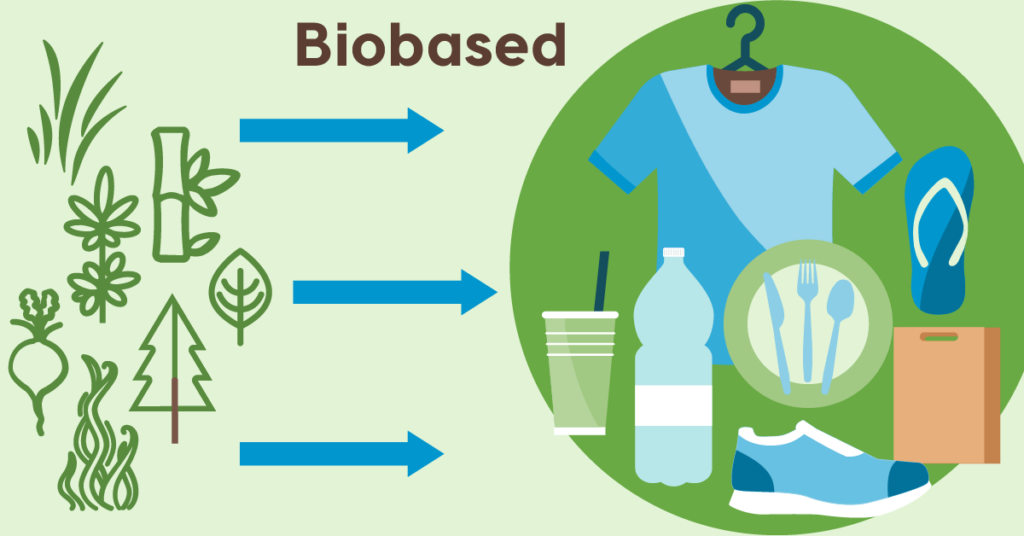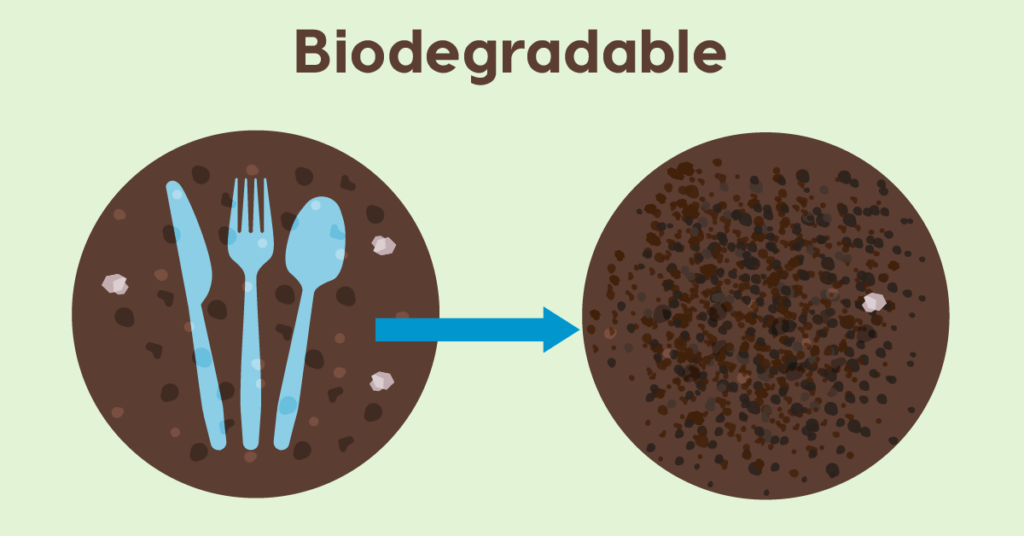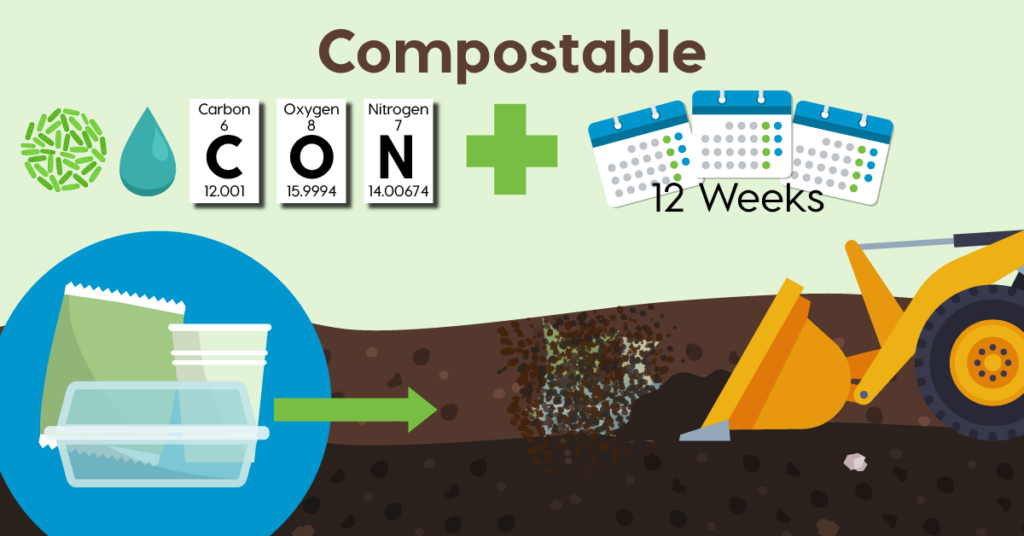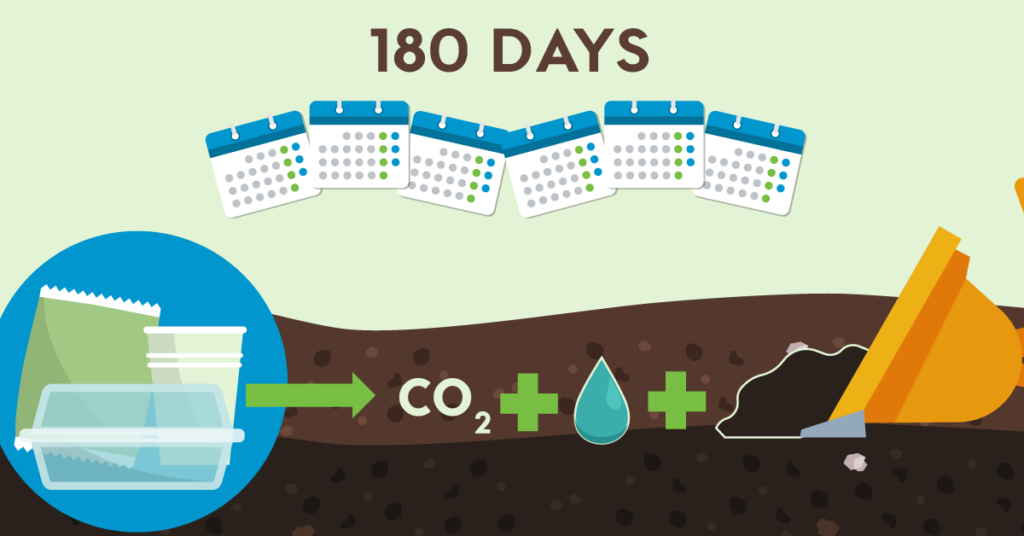7/29
What does “compostable” mean? Is it the same thing as “biodegradable”?
In the plant-based products industry, we often hear confusion around the terms “biobased,” “compostable,” and “biodegradable.” Accurately understanding what these terms mean is important for all stakeholders. Confusion around terms like this can lead to misinformed “greenwashing” claims –and although it is certainly a real phenomenon, false “greenwashing” accusations can stifle innovation and progress.
Biobased

Let’s start with “biobased.” The United States Department of Agriculture (USDA) defines biobased products as ones that are derived from plants and other renewable agricultural, marine, and forestry materials. This derivation must be demonstrated through a determination of biobased carbon content through standard test methods such as ASTM D6866. Biobased does not refer to a product’s end-of-life options – it simply refers to the materials from which it is made. Biobased products are not all biodegradable or compostable.
Biodegradable

So what is “biodegradable?” Generally, it means a product that is designed to degrade as a result of the action of naturally occurring microorganisms such as fungi, algae, and bacteria. This is a vague definition, and often to leads to confusion among consumers. In fact, states like California, Maryland, Washington, and Minnesota have restricted “biodegradable” as a marketing term to ensure it’s not used in a misleading way. While most materials degrade eventually, the real question is over what time frame and in what environmental conditions.
Compostable

“Compostable” is a much more defined, smaller subset within the overarching umbrella of “biodegradable.” An item described as “compostable” must be able to break down within a certain timeframe and under specific conditions created in an industrial composting facility. ASTM requires that the material must disintegrate within 12 weeks and biodegrade within 180 days. The conditions necessary for compostable materials to break down generally cannot be created with common backyard compost systems. Third-party certification programs like the Biodegradable Products Institute help ensure consumers that a product meets the ASTM requirements.

Importantly, items described as “compostable” also will not break down appropriately in a landfill or the natural environment. Industrial composting facilities create specific conditions that rely on microorganisms, water, carbon, oxygen, and nitrogen to degrade compostable materials into carbon dioxide, water, and compost. In landfill conditions, deprived of oxygen and other necessary factors, compostable products will not properly degrade. And while some items may be compostable in a backyard compost system, there are no U.S.-based standards to verify such claims.
Composting provides many environmental benefits – compost itself is a valuable soil amendment and improves overall soil health and its carbon sequestration properties. But only about 15% of composting facilities accept compostable materials, like packaging. PBPC works every day to expand and improve our country’s industrial composting infrastructure to support these end-of-life options.
Summing It Up
In summary, “biobased,” “biodegradable,” and “compostable” are all separate terms with different definitions. Products can be biobased without being biodegradable or biodegradable without being compostable. And while all compostable products are biodegradable, all biodegradable products are not compostable. Providing education on what these terms truly mean is an important way to set the record straight, especially to avoid the dangerous implications of greenwashing.
